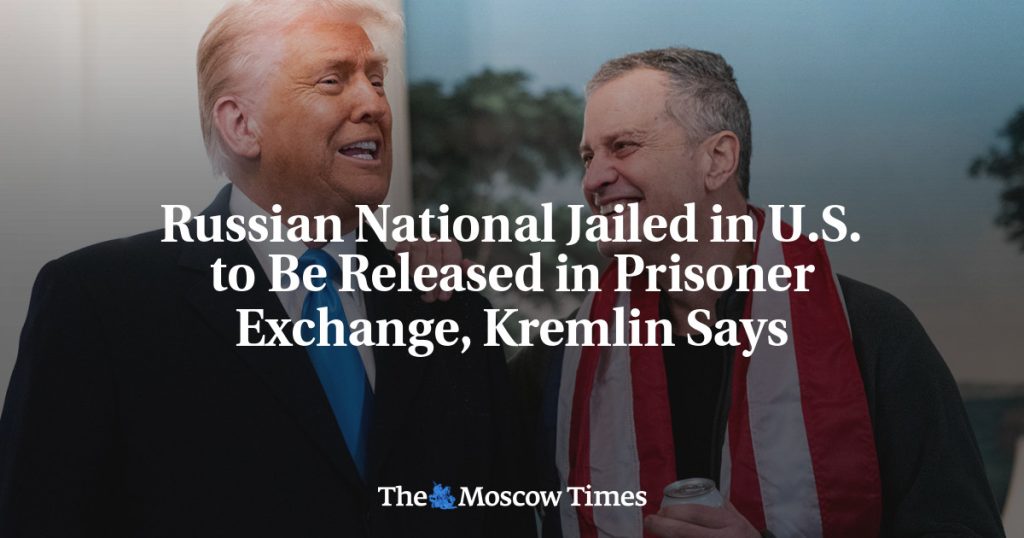A Surprising Exchange of Prisoners Between Russia and the United States
On Wednesday, Russia announced the release of an American teacher, Marc Fogel, who had been detained in Russia since 2021 on drug charges. The news came as a surprise, following intense negotiations and diplomatic efforts. Kremlin spokesperson Dmitry Peskov detailed the outcome during a daily press briefing, stating, "As a result of these efforts, Fogel has been released, along with a Russian citizen who is currently being held in a U.S. prison." This exchange marks a significant moment in the often-tense relationship between the two nations, highlighting the possibility for cooperation even amid broader geopolitical disagreements.
The Role of Diplomatic Envoys and High-Level Negotiations
The White House confirmed the exchange, noting that U.S. President Donald Trump had secured Fogel’s release. Trump greeted Fogel at the White House on Tuesday night, emphasizing his commitment to the cause. The President recalled a meeting with Fogel’s elderly mother at a campaign rally, where he had promised to bring her son home. National Security Advisor Mike Waltz added that the negotiations, led by Trump’s envoy to the Middle East, Steve Witkoff, and other White House officials, were a "show of good faith from the Russians" and a positive sign in the ongoing efforts to resolve the conflict in Ukraine. The diplomatic efforts underscore the complexity of international relations, where individual fates can become entangled in broader geopolitical strategies.
Details and Ambiguities of the Exchange
Despite the announcement, several details remain unclear. Peskov did not identify the Russian citizen who was released from U.S. custody or specify when they would return to Russia. The White House also did not provide information about whether any other exchanges or concessions were part of the deal. Trump hinted that a second U.S. detainee in Russia would be released on Wednesday, but did not offer further specifics. The lack of transparency in these high-stakes negotiations is not uncommon, as both sides often have strategic reasons to keep certain details confidential. However, the release of Fogel and the unnamed Russian citizen suggests that both countries are willing to engage in dialogue and find common ground, even in the face of significant tensions.
The Human Impact of Diplomatic Efforts
The human stories behind these exchanges highlight the personal toll of international relations. For Marc Fogel and his family, the news of his release is a long-awaited and joyful relief after a harrowing ordeal. Similarly, the unnamed Russian citizen, whose identity and background remain unknown, will soon be reunited with their family. These moments of individual triumph and hope can sometimes serve as a reminder of the humanity that can bridge political divides. The emotional and psychological impact on both the freed individuals and their families cannot be overstated, and their stories add a personal dimension to the broader diplomatic narrative.
Implications for Future Relations
The prisoner exchange between Russia and the United States may have broader implications for the future of their bilateral relations. While the exchange is a positive development, it does not erase the underlying issues that have strained the relationship, such as the conflict in Ukraine, cybersecurity concerns, and human rights violations. However, it does provide a glimmer of hope that through continued dialogue and goodwill, both nations can work towards resolving their differences. The success of this exchange could serve as a template for future negotiations, demonstrating that even in the most challenging of circumstances, cooperation and empathy can lead to positive outcomes.
Supporting Independent Journalism in Challenging Times
The Moscow Times, an independent news source, has been facing unprecedented challenges, including being labeled as an "undesirable" organization by Russia’s Prosecutor General’s Office. This designation criminalizes their work and puts their staff at risk of prosecution, following an earlier unjust labeling as a "foreign agent." The authorities claim that the paper’s reporting "discredits the decisions of the Russian leadership," but the journalists of The Moscow Times are committed to providing accurate, unbiased news about Russia. To continue their vital work, they are appealing for support from their readers. Every contribution, no matter how small, makes a significant difference in defending open and independent journalism in the face of repression. Your support can help ensure that the voices of independent journalists are heard, even in the most challenging of times.












